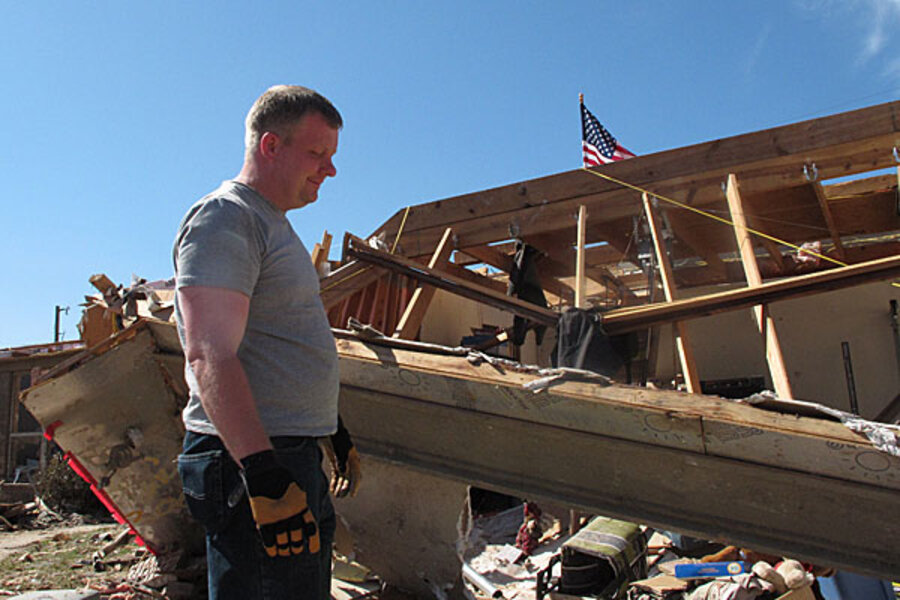Marianthe Bagensie was hunkered down at her office on Tinker Air Force Base when her phone rang. Her husband, Scott, was stuck in traffic on I-35, near 89th Street, heading toward the tornado.
"What are you doing there?" she asked, incredulous.
"I'm heading home to take care of the dogs and cats," the air traffic control specialist replied.
With older son Alexander serving in Afghanistan with the Air Force and 20-year-old Zack preparing to leave the nest, the seven animals had become more precious than ever to the couple. But Marianthe had just lost her mother and grandfather in one horrible March week, and she wasn't ready to lose Scott.
"Please," she begged. "Don't be stupid."
Scott Bagensie's first thought was to pile the animals into the car and try to outrun the tornado. But when he heard that the storm was bearing down on the Warren, he knew that wasn't an option.
Using Milk Bones, Scott easily lured Apollo, a hound-pit bull mix, and Night Song, a shepherd, into the bathroom and closed the door.
The four cats weren't so easy.
At 16, Hunter went docilely into the master bedroom closet, followed by Chaser, Alexander's white Siamese. But twins Jade and Ying Yang, who weighs in at nearly 14 pounds, were under the bed and weren't coming out without a fight, so Bagensie left them to fend for themselves.
Animals as safe as he could make them, he went outside to find debris already swirling in the air. He was starting to panic when he spotted a man waving from a garage two doors down.
"We have room in the shelter," the man shouted. "Come on over here."
Bagensie was the last of the 10 people to get inside. Not five minutes later, everything went dark.
Marianthe Bagensie tried in vain for more than an hour to reach her husband. Finally, she got through.
"The house is gone," he said.
"I don't care," she replied. "You're safe."
When Bagensie made his way through the wreckage to the bathroom, the two dogs were wagging their tails at him. He found Hunter perched on a pile of clothes at the far corner of the closet.
By Tuesday, all were safe and accounted for.
Scott Bagensie says he would do the same thing all over again, "I value my animals that much." Much as she loves them all, Marianthe isn't sure it was worth the risk.
She glanced over at the garage where Scott had finally taken refuge.
"I probably wouldn't be standing here right now if I had lost him," she said as she stood in front of the mangled home. "It's just too much. It's just too much. ... He is my other half."





